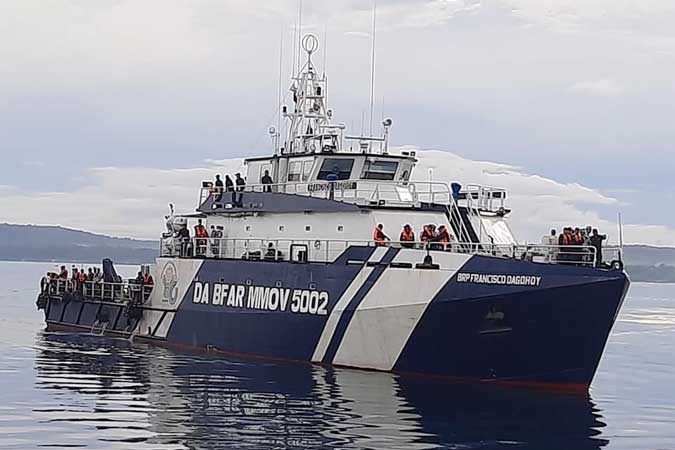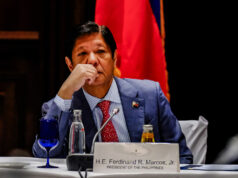BFAR needs at least 6 more vessels to monitor waters, marine resources — advocacy group

THE BUREAU of Fisheries and Aquatic Resources (BFAR) should have more big vessels for patrolling Philippine waters, food advocacy group Tugon Kabuhayan said.
Tugon Kabuhayan convener Asis G. Perez, a former BFAR national director, said in a virtual briefing on Monday that the agency currently has two specialized ships used in patrolling the country’s waters and for humanitarian missions.
He said at least six more boats of similar specifications should be acquired by the government to strengthen monitoring and surveillance.
“The Philippines is an archipelagic nation. We need to increase the number of vessels, particularly the big ones, since BFAR only has two big ships, the BRP Francisco Dagohoy and the BRP Lapu-Lapu,” Mr. Perez said.
“These vessels are classified as multi-mission vessels. They are also used to tend to Filipinos who are stranded as a result of typhoons,” he added.
Further, Mr. Perez urged BFAR to also prioritize the hiring of additional personnel to monitor the country’s waters.
Mr. Perez served as BFAR national director from 2011 to 2016 under the term of former President Benigno Simeon C. Aquino III who just passed away on June 24. “I think BFAR should hire around 500 new employees. During my term as BFAR national director, around 1,000 new employees were hired and given plantilla positions. But it is still not enough. The current leadership can add more since our country has many islands and has vast waters,” Mr. Perez said.
“While law enforcement efforts are being continued, there is a need to upscale these efforts in light of the threat of foreign poachers,” he added.
Meanwhile, Mr. Perez noted that it was under the Aquino administration when the Philippine fisheries resource management and law enforcement were given further importance with the passage of Republic Act (RA) No. 10654, which amended RA 8550 or the Philippine Fisheries Code and the acquisition of patrol vessels, among others.
“The objective of these efforts is to rehabilitate and protect the resource base in order to increase and ensure sustainable production and food security, which is one of the primary reasons for the enactment of the Fisheries Code,” Mr. Perez said. — Revin Mikhael D. Ochave



